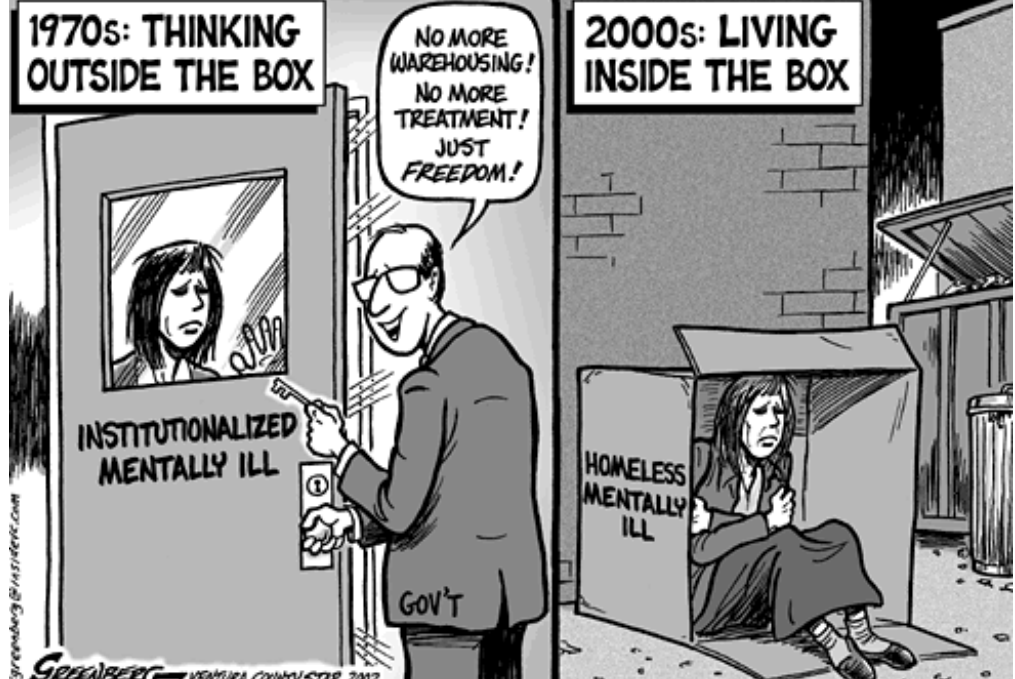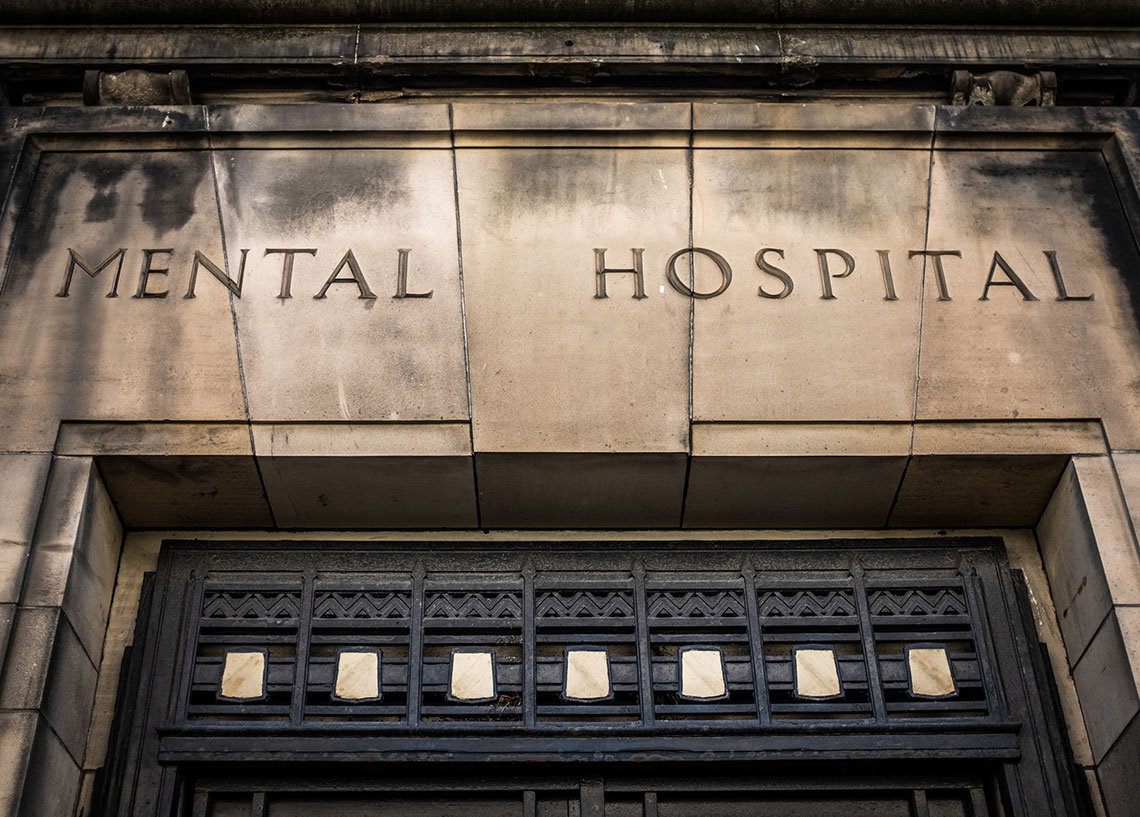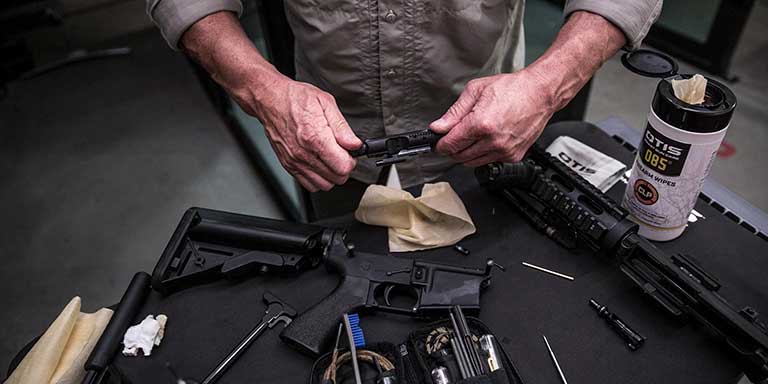Guns Aren’t the Problem, The Nuts Are: Time to bring back the Mental Hospital
by Joseph A. Scalia Esq.
Nut Control the Real Solution to Gun Violence – After each act of inexplicable violence, such as the Route 91 Harvest music festival in Las Vegas claimed 58 lives, the usual chorus is screaming for gun control. The fact is however, we don’t need gun control; we need nut control! An alternative approach that focuses not on gun control but on a more profound issue: the need for control of the mentally unstable and reopening the mental hospitals.

Nut Control Historical Echoes: Mental Hospitals in 1955
Starting in 1773, the United States boasts a legacy of constructing and maintaining mental hospitals. In 1955, over 100 such institutions housed a population exceeding 560,000 individuals, as documented in the Psychiatric Bulletin. (Psychiatric Bulletin 1985 Fagin)
The Missing Million: Impact of Population Growth
Fast forward to 1955, when the U.S. population stood at approximately 165 million. Today, with over 315 million people, there should theoretically be over a million individuals in mental hospitals by 1955 standards. Yet, the question persists: where are they?
Nut Control Wandering the Streets: The Fallout of Deinstitutionalization
Where are these million of people who should be in mental hospitals? The reality is stark – those who should have been in mental hospitals are now living in our communities, wandering around the streets while arguing with imaginary figures, or imprisoned, declared insane but competent after committing crimes.
The Diverse Face of Insanity: Beyond Gun Violence
Why is this happening? It must be the Guns? Wrong, we’ve had guns for centuries. Many allegedly smart people run around decrying inanimate objects (guns) for causing death and mayhem. Our streets have become killing grounds as every lunatic who can somehow get a gun becomes a one-man massacre with an assault rifle. But a closer inspection of the headlines reveals a myriad of machete attacks, crazies pushing people into oncoming subway cars, a man holed up in a bunker, and ex-cop on a bloody rampage – and who can forget the bath salts man who cannibalized a man on the streets of Miami? And so it goes with each bizarre and horrible story replaced by the next stupefying act of insanity.
Nut Control The Ignored Culprit: Deinstitutionalization
Buried beneath the blame game is the real and often overlooked reason for the surge in mental health crises: deinstitutionalization, a policy crafted to close mental hospitals under the guise of cost savings. In other words deinstitutionalization is a fancy way of saying “let’s close the mental hospitals to save money.”
A Cruel Legacy: “Rights” vs. Mental Health
Like most bad ideas sprouted in the 60’s, some moron thought it would be a good idea to give crazy people “rights” and let them live in the community. Now, sixty years later, and “off their meds” they terrorize their families and hold entire communities hostage. In an earlier “less enlightened” time they would have been committed and received much needed care in a mental hospital at the taxpayers expense.
The Sandy Hook shooter, the Arizona Congresswoman shooter, the Denver theater shooter, (dressed like the Joker no less), would have all been put away a long time ago. The homeless, who self medicate with booze and drugs, the machete killers, the Unibomber all would have brooding from the confines of their local nut house.
A Simple-Minded Solution
So as a society, we ignore the fact that closing the mental hospitals was a particularly cruel idea. The notion that people with raging mental illnesses could be medicated and set loose upon the streets and in our communities is an arrangement in which no one benefits. How does such a thing happen?
As the deinstitutionalization experiment flounders, blame is often placed on guns, drugs, or other simplistic scapegoats. Rounding up individuals struggling with mental health issues and reintegrating them into mental hospitals is deemed too complex.
It is simple. The fiscal conservatives see a way to cut the expenses of operating large mental institutions. The left believe that nonsensical notion that people have a “right” to wander the streets and sleep in their own feces. It’s a political partnership made in hell.
The True Cost: A Nation Ruled by Oversight
The consequences of this arrangement are dire – offering little to those suffering from serious mental illness or their families seeking help. Moreover, it fails to improve the overall quality of life in society.
deinstitutionalization is failing, and as it fails, its time to blame the guns, the drugs, or the bath salts. These simple minded schemes are much easier to sell to an already dumbed down public and much easier than actually rounding up the nuts and putting them back in mental hospitals. It is unspeakably cruel to tell someone that they are merely enjoying their freedom to sleep on the streets.
Conclusion: A Nation at the Mercy of Oversight
Furthermore, contrary to the illusion of cost savings, the financial burden of this mental health crisis is now spread across prisons, courts, emergency rooms, and the streets of cities, reaching universities, grade schools, and even concert venues. Yes, America, you are ruled by the simpleminded well intention fools who have emptied out the mental hospitals and let the lunatics run amok on the streets.
So, the United States finds itself in the grip of a crisis stemming from the closure of mental hospitals and the subsequent failure to provide adequate care for those struggling with mental health issues. It’s time to reassess our priorities and address the critical issue of mental health care in our communities before more lives are needlessly lost, It’s time to return then inmates to the asylums.
About Joseph A. Scalia II, Esq
Joe Scalia is one of the most dynamic attorneys in Las Vegas. Joseph “El Pelon®” Scalia (“the bald one”) as he is known, enjoys a sterling reputation in the community, with his clients, his peers and with the judiciary. Mr. Scalia earned his Juris Doctor at University of Baltimore School of Law. He holds a Bachelor of Arts degree in Economics from University of Maryland.





